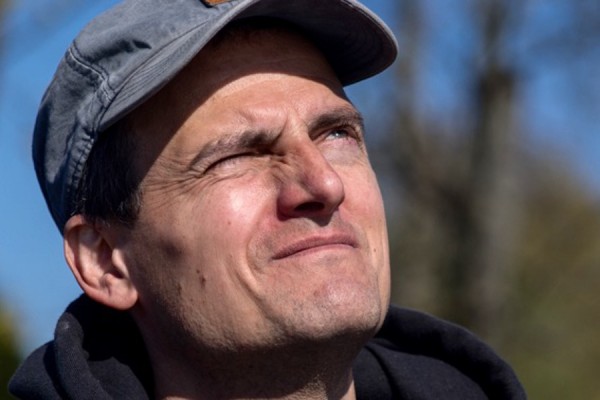Wojciech Staroń has given his public a life lesson more than once. After all, his two most well-known documentaries include 'Siberian Lesson' and 'Argentinian Lesson'. Shot at two opposite ends of the world, both are stories about people immersed in reality which the director discovers together with them in an attempt to understand it. If we used films made by Staroń, a prominent cinematographer, director and scriptwriter, as a basis to identify his professional credo, that very need to understand the protagonist, regardless of the conditions and resisting the temptation of embellishing appearances, would constitute one of his essential tenets. Staroń’s diversified, ever surprising cinema shows in how many ways an artist can get close to another man, though always keeping the appropriate distance.
Fascinated by theatre in primary school already, he discovered the passion for photography in high school and decided to dedicate his life to it. He got easily admitted to the Director of Photography Department at the National Film School in Łódź, although he did not quite find there what he was looking for. Instead of the much needed mentorship, discussions about the meaning of being a movie-maker and the meaning of life itself, he received a solid craftsmanship training combined with priceless practical knowledge. Finally, however, he met two of his Masters whose extreme artistic temperaments formed a perfect blend: the doyen of the Polish Film School, Jerzy Wójcik, and Witold Sobociński, the author of the visionary cinematography in films by Andrzej Żuławski, Wojciech Jerzy Has and Roman Polański. Staroń’s work was going to oscillate between these two poles, between moderation, frugality, and the cinematographic bravado.
For a wide public, Staroń is above all the cinematographer of many highly regarded feature films, where his contribution perfectly conveyed the ambiance of the narration. The breakthrough came when his started working with Krzysztof Krauze and Joanna Kos-Krauze. He was the assistant director, cinematographer as well as the person responsible for a part of the cinematography and photos in 'My Nikifor', where he also played a bit part. Now, 'Saviour Square' and 'Papusza' were lensed exclusively by Staroń, who managed to show a crude Warsaw flat becoming the setting for bitter rows and to bestow an epic élan on the black and white biography of a Roma poetess. The Polish talent has soon become appreciated abroad and paved him the way to an international career. The power of such films as Paula Markovitsch’s 'El Premio' or Diego Lerman’s 'Refugiado' (screened at the Cannes Film Festival in 2015) originates from Staroń’s unique visual sensitivity.
The director’s sensitivity is also a great advantage of his documentaries which contradict the stereotype of the “cinematographers’ cinema” being nothing more than an album of nice pictures. Staroń uses his camera to discover the world and establish intimate relations with the protagonists, rather than for thoughtless beautification. His best works, including the film 'Brothers' screened at this year’s Two Riversides Festival, are characterized by a certain severity which favors exploring one’s story – often different than our own, which only makes it even more engaging. In fact, according to Staroń, we are all brothers and sisters – for better and for worse.
Sebastian Smoliński








FOLLOW US